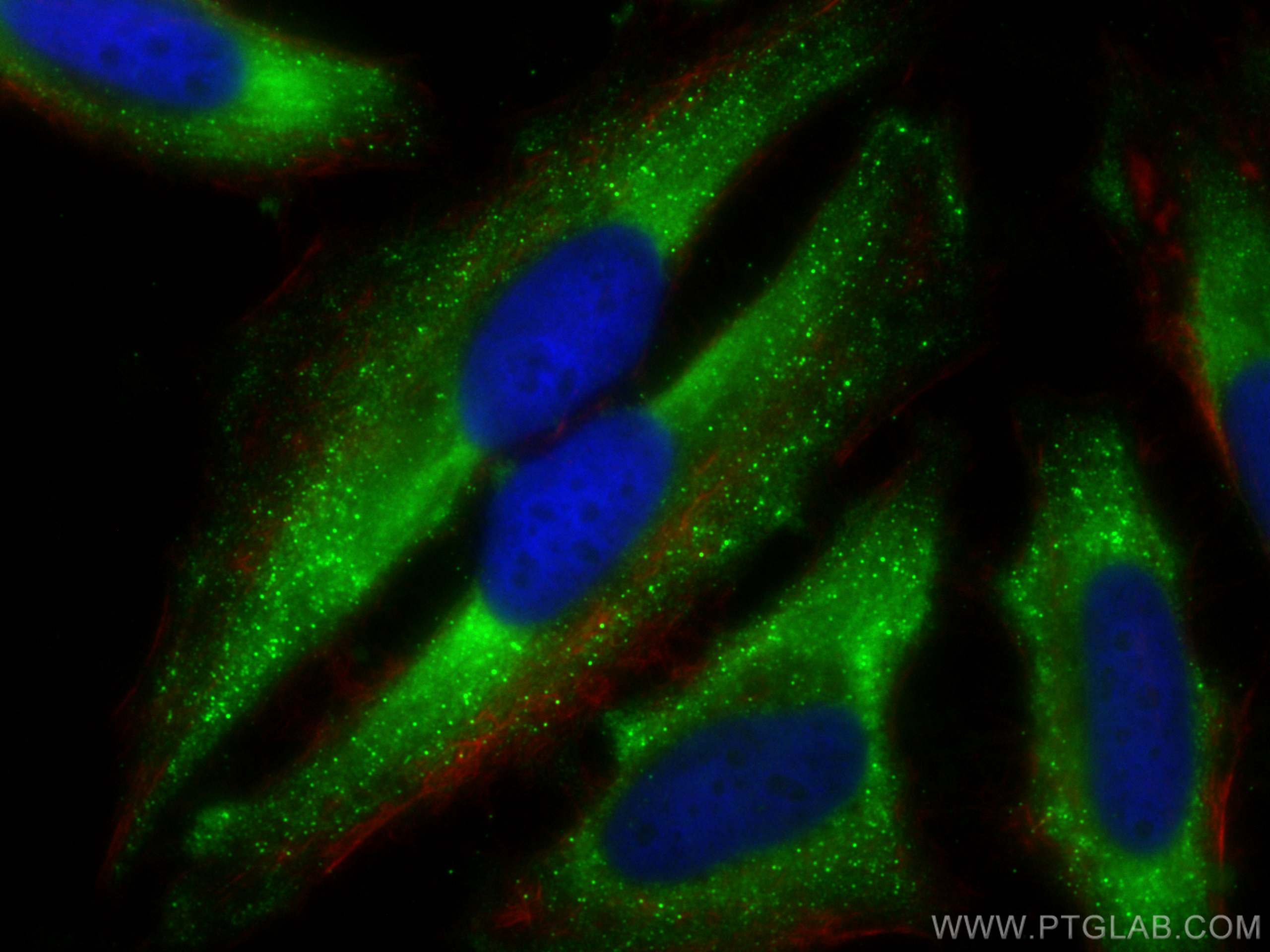Tested Applications
| Positive IF/ICC detected in | HeLa cells |
Recommended dilution
| Application | Dilution |
|---|---|
| Immunofluorescence (IF)/ICC | IF/ICC : 1:50-1:500 |
| It is recommended that this reagent should be titrated in each testing system to obtain optimal results. | |
| Sample-dependent, Check data in validation data gallery. | |
Product Information
CL488-15059 targets HPRT in IF/ICC applications and shows reactivity with human, mouse, rat samples.
| Tested Reactivity | human, mouse, rat |
| Host / Isotype | Rabbit / IgG |
| Class | Polyclonal |
| Type | Antibody |
| Immunogen |
CatNo: Ag7044 Product name: Recombinant human HPRT1 protein Source: e coli.-derived, PET28a Tag: 6*His Domain: 1-218 aa of BC000578 Sequence: MATRSPGVVISDDEPGYDLDLFCIPNHYAEDLERVFIPHGLIMDRTERLARDVMKEMGGHHIVALCVLKGGYKFFADLLDYIKALNRNSDRSIPMTVDFIRLKSYCNDQSTGDIKVIGGDDLSTLTGKNVLIVEDIIDTGKTMQTLLSLVRQYNPKMVKVASLLVKRTPRSVGYKPDFVGFEIPDKFVVGYALDYNEYFRDLNHVCVISETGKAKYKA Predict reactive species |
| Full Name | hypoxanthine phosphoribosyltransferase 1 |
| Calculated Molecular Weight | 25 kDa |
| Observed Molecular Weight | 24-28 kDa |
| GenBank Accession Number | BC000578 |
| Gene Symbol | HPRT1 |
| Gene ID (NCBI) | 3251 |
| RRID | AB_3672617 |
| Conjugate | CoraLite® Plus 488 Fluorescent Dye |
| Excitation/Emission Maxima Wavelengths | 493 nm / 522 nm |
| Form | Liquid |
| Purification Method | Antigen affinity purification |
| UNIPROT ID | P00492 |
| Storage Buffer | PBS with 50% glycerol, 0.05% Proclin300, 0.5% BSA, pH 7.3. |
| Storage Conditions | Store at -20°C. Avoid exposure to light. Stable for one year after shipment. Aliquoting is unnecessary for -20oC storage. |
Background Information
HPRT, also named HPRT1 and HGPRT, plays a central role in the generation of purine nucleotides through the purine salvage pathway. Mutation of HPRT1 is associated with Lesch-Nyhan syndrome (LNS) which is an X-linked inherited neurogenetic disorder of purine metabolism. It has been reported that HPRT1 also plays an important role in HPRT-related gout.
Protocols
| Product Specific Protocols | |
|---|---|
| IF protocol for CL Plus 488 HPRT antibody CL488-15059 | Download protocol |
| Standard Protocols | |
|---|---|
| Click here to view our Standard Protocols |




